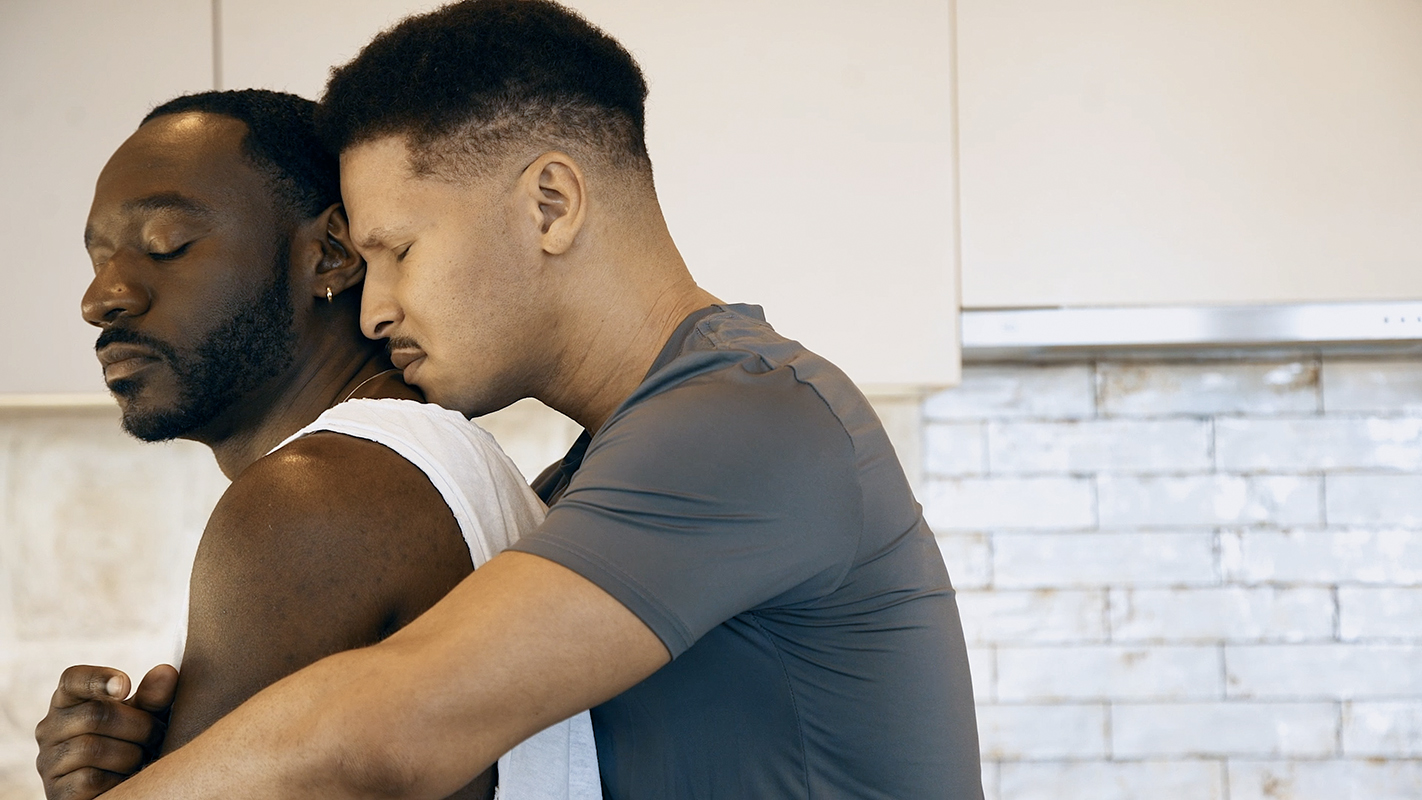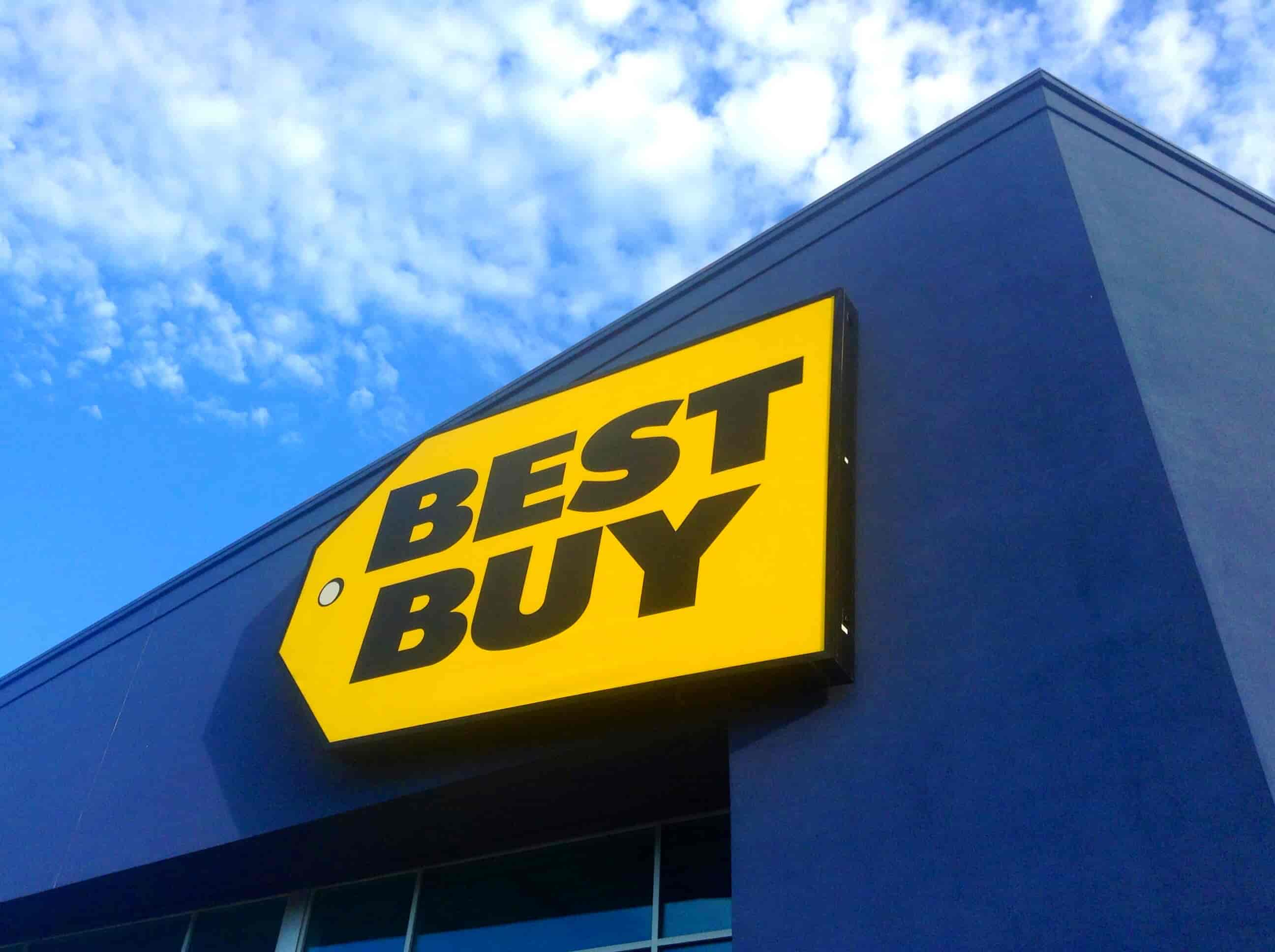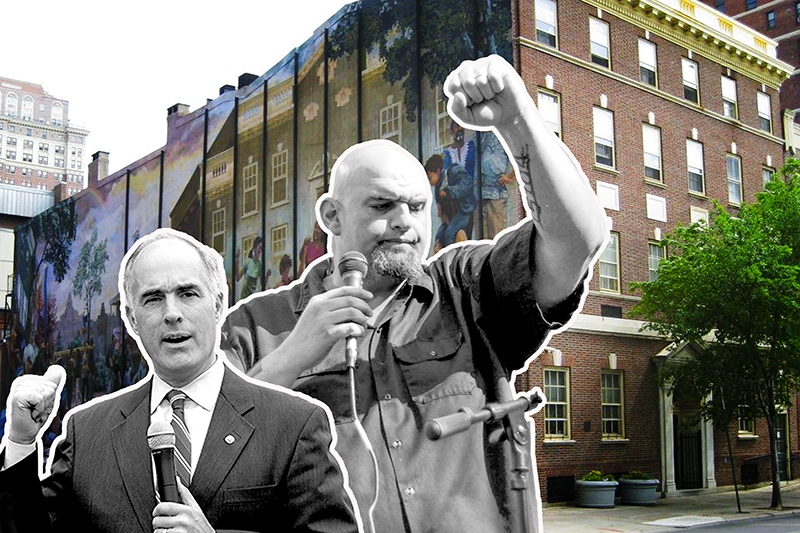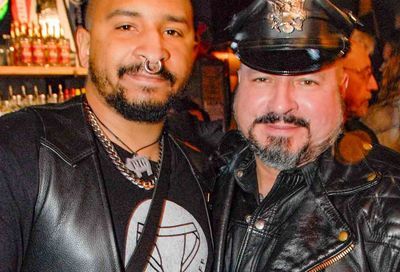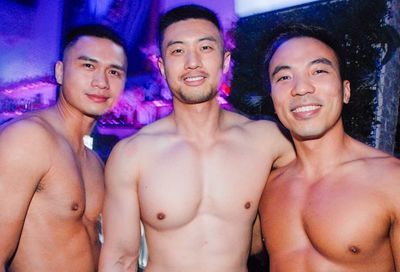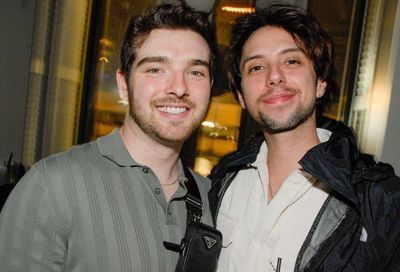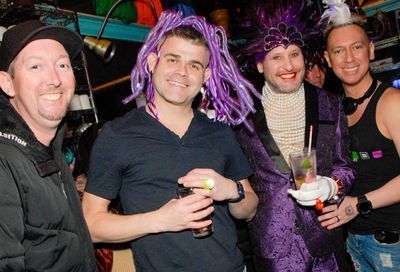Forward March: The Founder of the Equality March on Why it Matters
Invoking the spirit of the first Prides, the Equality March is a call for equity as much as a protest against inequality

One Saturday in January, David Bruinooge was doing some work in his Brooklyn apartment. The television played in the background, and he listened to coverage of the National Women’s March. When he realized the size of the crowds marching on the National Mall, he was struck by a thought: Why wasn’t the LGBTQ community mobilizing in the same way?
The 43-year-old producer took to Facebook to ask his just that. After speaking with a friend, he created a Facebook event page suggesting that LGBTQ people rally in the nation’s capital on Sunday, June 11. The response was overwhelming as thousands spread news of the event, quickly dubbed the Equality March for Unity and Pride.
“I think it’s necessary to march, because certain sectors of our community thought that once marriage equality passed, the fight was over,” says Bruinooge, one of 12 co-chairs for the Equality March. “We need to redefine what the next stage is in our community’s fight. There are a lot of people…within our larger LGBTQ community that are still hurting and need help.”
As part of the march, demonstrators will pass the White House on the way to the National Mall — a symbolic and very public gesture of defiance against a presidential administration that many see as hostile to their interests. Bruinooge points to a number of pressing issues that are either under threat or must be dealt with.
“We see what’s happening, violence against transgender members of our community, discriminatory laws that keep popping up, so there’s clearly issues out there,” Bruinooge says. “Elder rights need to be addressed. We still have a major youth homeless problem in this country, and 40 percent of them are LGBT youth. HIV, AIDS rates keep increasing in the black community. These are issues that need to be addressed and focused on.”
In organizing the march, Bruinooge reached out to a diverse group of people to serve as co-chairs. Incorporating an array of voices with different lived experiences helped highlight issues beyond marriage equality or bathroom bills. Racial justice, immigration, reproductive justice, environmental causes, health care, and a glut of other issues have been incorporated into the march’s official 15-point platform.
“We want to show how LGBTQ as a community is impacted by the environment, by mental health, by labor,” says March co-chair Jose Plaza. “So we’re putting all those issues at the forefront as it impacts LGBTQ equality. We understand that gay marriage was a huge win for the community, but undocumented individuals can still not get married, or get access to health care. And if the repeal of the ACA happens, equity is not going to be the same for a transgender person. And folks affected by HIV, their access to medication isn’t going to be the same.”
In addition to the general concept of equality, the march will focus on the importance of achieving equity for those LGBTQ people at the margins.
“The goal is to remind people that there’s diversity within the LGBT community, but with that diversity come different challenges that we need to be aware of,” adds Plaza, “because there are those in our community who are dying at the hands of over-policing, and community violence, and being deported back to home countries where they’re being murdered for who they are.”
While hundreds of thousands are expected to march, those who cannot make it to D.C. are being encouraged to participate in “solidarity events” in 95 cities across the globe.
“This is what democracy looks like, and that’s citizens rising up to make their voices heard, and be actively participating in society,” says Bruinooge.
Immediately following the march, organizers have tentatively arranged for a rally on the National Mall. If it doesn’t gel, Bruinooge says organizers may instead hold a press conference aimed at communicating the message behind the march to a wider audience.
As for holding the march on Pride weekend, the choice was a deliberate one.
“I knew there would be a lot of people in the city,” he says. “Not being from D.C., obviously I didn’t know the landscape of Capital Pride, but knew there would be people in D.C. who would want to attend.”
When Capital Pride first heard about Bruinooge’s event, they reached out to him to discuss logistics, so that the march would not conflict with the Concert and Festival held that day.
“We’re building our programming around the march,” says Ryan Bos, the executive director of Capital Pride. “The overarching schedule is the same. We hope to have the festival ready to go at noon. In terms of when the concert stage begins, the final run of show, we are working in partnership to ensure a positive narrative and a good flow.
“We want to ensure a very empowering weekend for all, and provide opportunities for individuals to get engaged and be inspired to take action, and do the work that’s going to be needed, beyond any single march or any single pride weekend,” Bos continues. “This work needs to be done 365 days of the year. We hope the relationships that have been developed through these conversations can continue, and that we can hold future conversations that can be fruitful.”
As to whether the march will be an annual occurrence, Bruinooge hedges. It depends on future political circumstances.
“I think there is a sense that people in the community want to have marches, especially right now, in addition to celebrations of pride of our community. So it could very well happen.”
Bruinooge also notes that the march harkens back to the genesis of Pride, which began with the Stonewall Riots of 1969 in response to continued police harassment and raids of LGBTQ bars.
“Prides initially started off as marches and protests, and the people who have come before us have sacrificed, have done so much work to get to where we are as a community now. So marching is a way to sort of honor those people who were brave enough to take those initial steps.”
The Equality March for Unity and Pride starts on Sunday, June 11, at 10 a.m., at I and 17th Streets, NW. Participants are encouraged to begin lining up at 9 a.m. For more information, visit equalitymarch2017.org.

Support Metro Weekly’s Journalism
These are challenging times for news organizations. And yet it’s crucial we stay active and provide vital resources and information to both our local readers and the world. So won’t you please take a moment and consider supporting Metro Weekly with a membership? For as little as $5 a month, you can help ensure Metro Weekly magazine and MetroWeekly.com remain free, viable resources as we provide the best, most diverse, culturally-resonant LGBTQ coverage in both the D.C. region and around the world. Memberships come with exclusive perks and discounts, your own personal digital delivery of each week’s magazine (and an archive), access to our Member's Lounge when it launches this fall, and exclusive members-only items like Metro Weekly Membership Mugs and Tote Bags! Check out all our membership levels here and please join us today!




